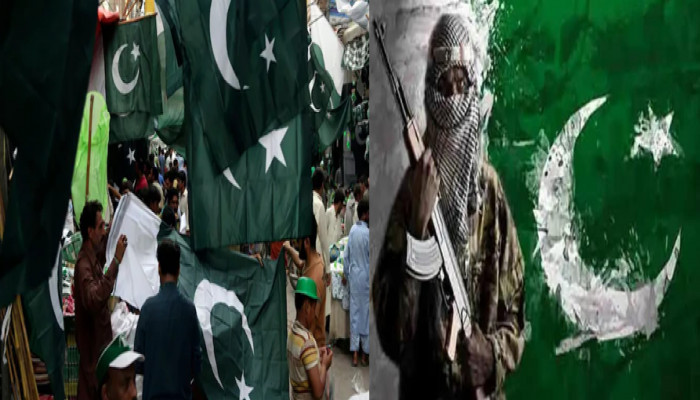Pakistan among world's most dangerous nations with terror trail in Moscow, London
- In Reports
- 04:09 PM, Apr 30, 2025
- Myind Staff
Top government sources said on Wednesday that Pakistan has a history of supporting and providing shelter to terrorists, making it one of the most dangerous forces in the world. This statement came a week after a terror attack in Pahalgam, Jammu and Kashmir, which killed 26 people. The sources specifically referred to a 2011 US military operation that tracked Al-Qaeda leader Osama bin Laden to a compound in Abbottabad, Pakistan.
Government sources have raised concerns about remarks made by senior Pakistani leaders, including former Prime Ministers Nawaz Sharif and General Pervez Musharraf. In their statements, they appeared to admit that Pakistan's government may have had a role in cross-border terror incidents such as the 26/11 Mumbai attacks. A Pakistani minister also reportedly said that their country had done "dirty work" for the United States when questioned about funding terrorism. These sources also highlighted that Pakistan has supported a global network behind terror attacks. These include the attacks on Indian and American embassies in Kabul in 2008 and 2011, the 2024 attack on a concert hall in Moscow, and the 2005 bombings in London. In all these incidents, investigations suggested that the terrorists may have received logistical help or ideological backing from networks linked to Pakistan.
According to detailed sources, after the terror attack in Pahalgam, the government is in no mood to tolerate any more denials from Pakistan about its role in global terrorism. These statements, sources said, reflect a harsh truth — that Pakistan’s government and army have turned soldiers into jihadist leaders, driving decades of terrorism across South Asia. Sources also claimed that Pakistan finances several training camps for different terrorist groups on its soil, including Lashkar-e-Taiba and Jaish-e-Mohammed. Jaish was behind the Pulwama attack in Jammu and Kashmir in February 2019, where 40 soldiers lost their lives. These training camps, according to sources, act as centres where people are radicalised, trained in using weapons, and prepared for suicide missions. They are reportedly run by ex-soldiers of the Pakistani army. In conclusion, highlighting Pakistan’s involvement in training and supporting terrorists and terror attacks around the world, sources also pointed to a report from the US State Department. The report states that Pakistan "continues to be a safe haven for certain terrorist groups that operate in the region."
These developments follow a high-level meeting on Tuesday night led by Prime Minister Narendra Modi. According to sources, the Prime Minister has given the armed forces the freedom to take necessary military action. Reports also suggest that Pakistani leaders are aware of a possible Indian military response. At a press conference held at 2 am, Pakistan’s Information Minister, Attaullah Tarar, said they had "credible evidence" about it. The international community has shown support for India and strongly condemned the attacks. However, the United Nations has urged both countries to act with caution. UN Secretary-General Antonio Guterres reminded both India and Pakistan that a full-scale war in South Asia would be disastrous.
Meanwhile, Pakistan has called for an international investigation into the Pahalgam incident. Defence Minister Khawaja Muhammad Asif told the New York Times that Pakistan is "ready to cooperate" with any inquiry led by international inspectors. The April 22 attack, where civilians, off-duty soldiers, and a Nepali citizen were killed, was claimed by The Resistance Front, a group linked to Lashkar-e-Taiba. Soon after, security agencies claimed they had proof of Pakistan’s involvement, which they later shared with senior diplomats from the US, UK, France, Germany, Italy, Russia, and even China.
Following the Pulwama attack, the Modi government quickly responded with military action; within a week, the Indian Air Force carried out targeted strikes on Jaish-e-Mohammed training camps in Balakot, Pakistan. The government also took several non-military steps, such as cancelling visas for Pakistani citizens and suspending the important Indus Waters Treaty. This treaty, signed in 1960, provides Pakistan with nearly 85% of its river water. Its suspension was strongly criticised by Pakistan, calling it an “act of war.” In response, Pakistan cancelled Indian visas and put other bilateral agreements on hold, including the 1972 Simla Agreement, which had established the Line of Control.







Comments